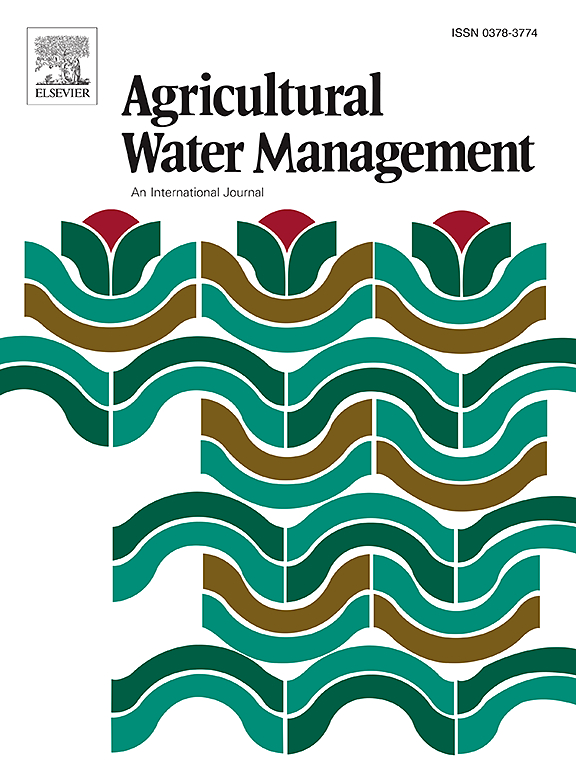优化灌溉系统,提高尼罗河沿岸三角洲的用水效率和地下水可持续性
IF 5.9
1区 农林科学
Q1 AGRONOMY
引用次数: 0
摘要
本研究调查了用现代灌溉系统(MIS)(包括水平喷灌、中央枢纽、地表滴灌和地下滴灌)取代传统地表灌溉方法的情况,旨在提高埃及尼罗河三角洲的用水效率。主要目标是确定实施现代灌溉系统的最佳农业区,并评估这些系统对该地区地下水水量和水质的影响。为此,采用了 LINDO 软件来优化每种灌溉方法的土地分配。同时,利用 SEAWAT 代码模拟尼罗河三角洲含水层的盐水入侵(SWI)。从传统的地表灌溉过渡到水利灌溉系统后,节水效果显著,节水量达到 2.15 × 10^9 m³。然而,地下水模型显示,由于补给水的渗透减少,地下水位下降,导致含水层盐度上升 8%。这些研究结果突出表明,尼罗河三角洲迫切需要修改过时的灌溉方法,加强水资源管理战略,以缓解沿海含水层的盐度问题。这项研究的成果对于决策者和利益相关者选择适当的灌溉方法至关重要,尤其是在干旱和半干旱地区,以确保水资源的可持续利用和农业生产力。本文章由计算机程序翻译,如有差异,请以英文原文为准。
Optimizing Irrigation Systems for Water Efficiency and Groundwater Sustainability in the Coastal Nile Delta
This study investigates the replacement of traditional surface irrigation methods with modern irrigation systems (MIS) including horizontal sprinkler, central pivot, surface drip, and subsurface drip aimed at improving water efficiency in the Nile Delta, Egypt. The primary objectives were to determine the optimal agricultural area for implementing MIS and to assess the effects of these systems on groundwater quantity and quality in the region. To achieve this, the LINDO software was employed to optimize land allocation for each irrigation method. At the same time, the SEAWAT code was utilized to simulate saltwater intrusion (SWI) in the Nile Delta aquifer. The transition from traditional surface irrigation to MIS resulted in significant water savings, reaching 2.15 × 10^9 m³. However, groundwater modeling indicated a decrease in groundwater levels, leading to an 8 % increase in aquifer salinity due to reduced infiltration of recharge water. These findings underscore the urgent need to revise outdated irrigation practices and enhance water management strategies in the Nile Delta to mitigate salinity issues in coastal aquifers. This research's outcomes are crucial for decision-makers and stakeholders in selecting appropriate irrigation methods, particularly in arid and semi-arid regions, to ensure sustainable water use and agricultural productivity.
求助全文
通过发布文献求助,成功后即可免费获取论文全文。
去求助
来源期刊

Agricultural Water Management
农林科学-农艺学
CiteScore
12.10
自引率
14.90%
发文量
648
审稿时长
4.9 months
期刊介绍:
Agricultural Water Management publishes papers of international significance relating to the science, economics, and policy of agricultural water management. In all cases, manuscripts must address implications and provide insight regarding agricultural water management.
 求助内容:
求助内容: 应助结果提醒方式:
应助结果提醒方式:


